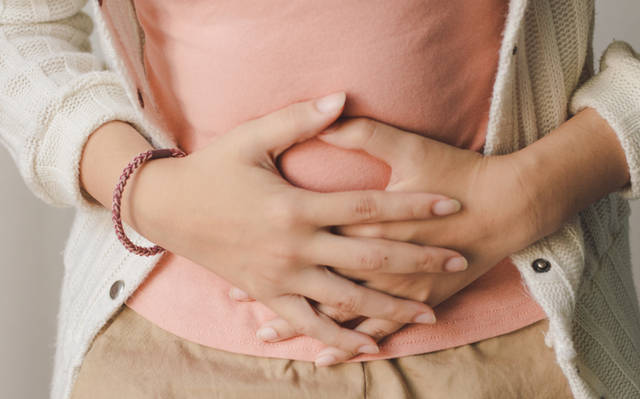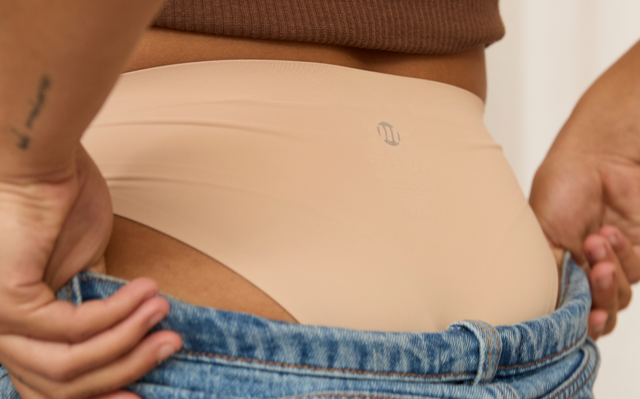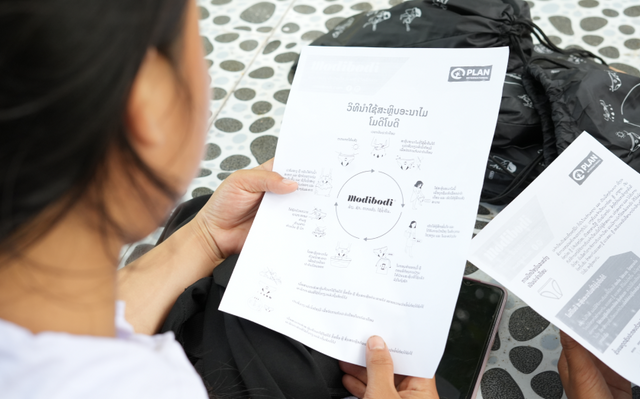Ovulation and bloating: everything you need to know
When it comes to your menstrual cycle, knowledge is power. Let’s take a look at ovulation – the time in your cycle when your body is at its most fertile and prepping to get pregnant. But beyond the potential for pregnancy, a few other things are happening that you might not know about. Many people experience a range of effects on their body and mind, like increased energy, a higher libido, mood swings and bloat when ovulating.
In this article, we’re taking a deeper look at this phase of your cycle, how it might make you feel and the signs to look out for.
What is ovulation?
Ovulation is when an egg is released from your ovaries and travels down the fallopian tube, where it may then be fertilised by sperm. Ovulation typically occurs in the middle of your menstrual cycle. That means if you have a 28-day cycle, you'll ovulate around day 14. But don't worry if your cycle is longer or shorter – this timing can vary from person to person and month to month. You may not ovulate every month, and your ovulation cycle can be affected by all sorts of factors, like stress, illness or medication.
The length of ovulation can vary, but it’s generally somewhere between 16 and 32 hours. However, some people may experience ovulation that lasts only a few hours, while others may experience it for a few days. The exact duration of ovulation can be influenced by hormonal fluctuations and individual differences – each person’s body is unique.
What’s the deal with ovulation bloat?
Bloating is a common symptom during the menstrual and luteal phases of your cycle – bloating after your period, anyone? But though it’s often thought of as a period symptom, many of us also bloat when ovulating. It's not your imagination – feeling like your stomach is a little extra puffy and uncomfortable during ovulation is real. But don't worry, because we've got some tips to help you manage it.
So why do you bloat during ovulation? It's all to do with those pesky hormones. Hormonal changes during and after ovulation can affect the digestive tract, causing bloating. Specifically, high estrogen levels can lead to water retention and gas.
How to manage ovulation bloating
How long does period bloating last? It really depends on your individual body. Luckily there are things you can address to ease bloating during ovulation, including:
- Exercise
- Diet
- Relaxation
Exercise
Exercise can be your best friend. Slow digestion can contribute to bloating, and exercise can help to speed things up and get things moving. So try to get some movement in. Whether it's a gentle yoga class, a jog or a dance party in your room – anything that gets your blood pumping can help.
Diet
Did you know that magnesium deficiency can cause your body to retain water and salt, leading to that bloated feeling? Eating magnesium-rich foods (think dark chocolate with over 70% cocoa) can help. Foods high in potassium (like bananas, tomatoes, sweet potatoes, spinach and kale) can also minimise bloating. And, of course, drink plenty of water to flush out any excess salt or water your body may be holding onto.
Relaxation
Stress can increase your stomach acid levels, leading to more bloating. Take some time out for yourself, whether it's a bath, meditation or simply sitting with a good book. Anything that helps you unwind can help to ease stress and slow down bloating.
What are some other ovulation symptoms?
The more you know about what’s happening in your body, the more empowered you can feel to do the things that make you feel good. For some people, their cycle can feel pretty cruisy with little change at all. For others, it can feel more like a bumpy roller-coaster ride.
A few tell-tale signs that you are ovulating are:
- Changes in cervical mucus
- Change in basal body temperature
- Breast tenderness
- Abdominal pain or cramping
- Spotting
- Increased sex drive
- Mood changes
Changes in cervical mucus
During ovulation, your cervical mucus becomes thin and watery, which makes it easier for the sperm to travel through the cervix and reach the egg.
Change in basal body temperature
Basal body temperature is the temperature of your body at rest. During ovulation, your basal body temperature increases slightly due to the hormonal changes in your body.
Breast tenderness
You may experience breast tenderness or soreness during ovulation. And again, this is due to those hormonal changes.
Abdominal pain or cramping
You may experience mild abdominal pain or cramping on one side during ovulation. What you’re feeling is a result of your body releasing an egg (or eggs) from your ovary.
Spotting
Due to the rupture of the ovarian follicle, which releases the egg, you may experience light spotting or bleeding during ovulation.
Increased sex drive
You may find an increase in your sex drive during ovulation, which could be due to the increased estrogen levels in your body.
Mood changes
Hormonal changes might also mean that you experience mood swings or changes in mood during ovulation.
Understanding your cycle
It’s helpful to know if you're ovulating, whether you're trying to conceive or not. With this knowledge, you can understand your body better, plan your life around your cycle and take proactive steps to manage any symptoms that may arise.
Remember, your body is unique, and everyone's experience of ovulation is different. Be kind to yourself, and get in touch with your GP if you experience severe symptoms or have concerns about your ovarian cycle.
Head over to the Modibodi blog, where we answer all your cycle-related questions, including how to feel your best during your luteal phase.








